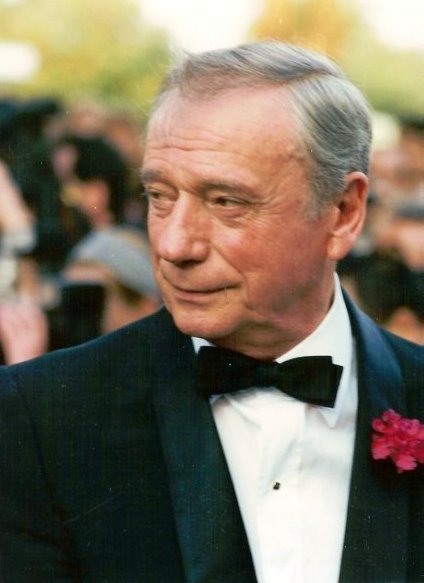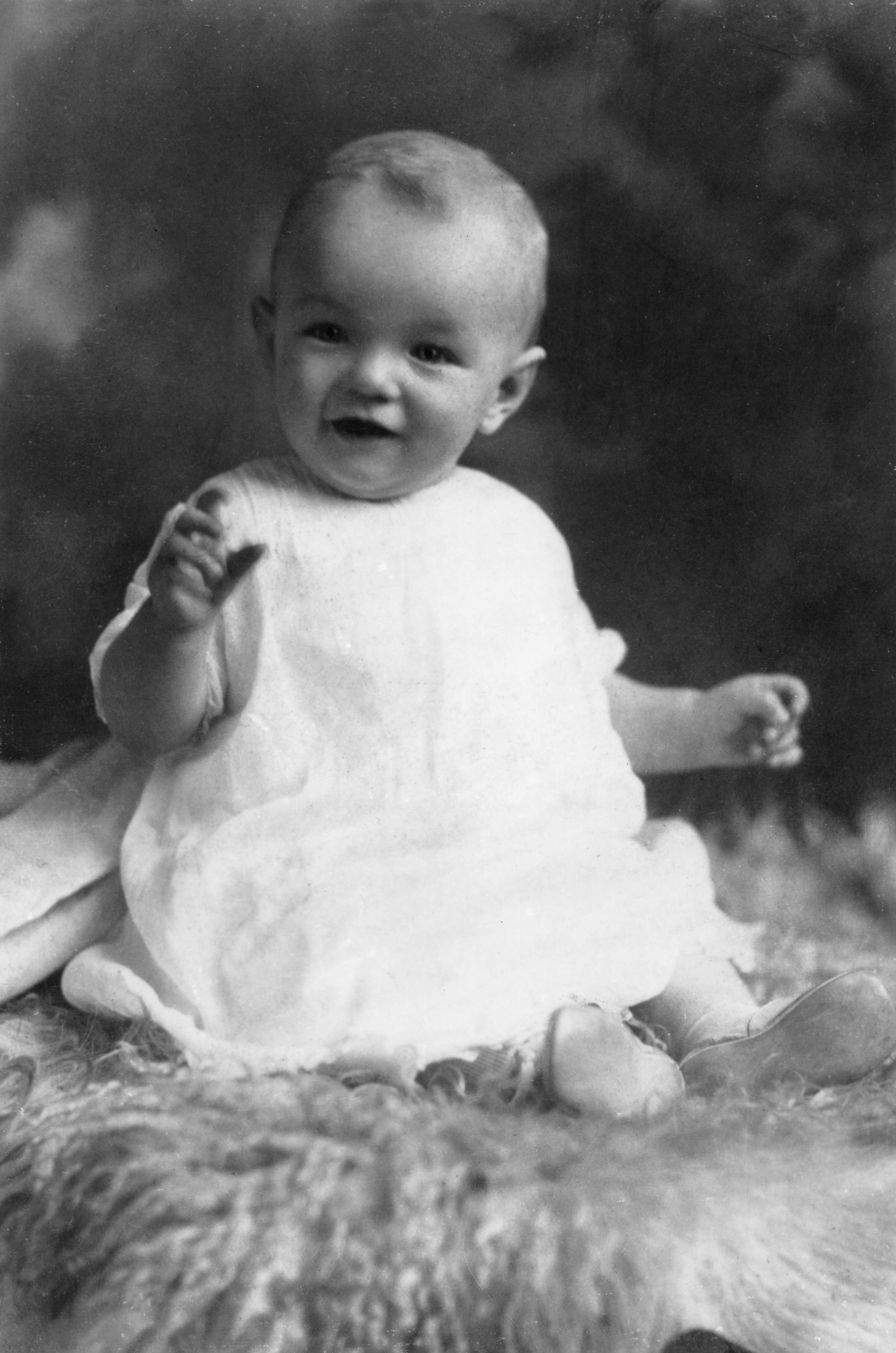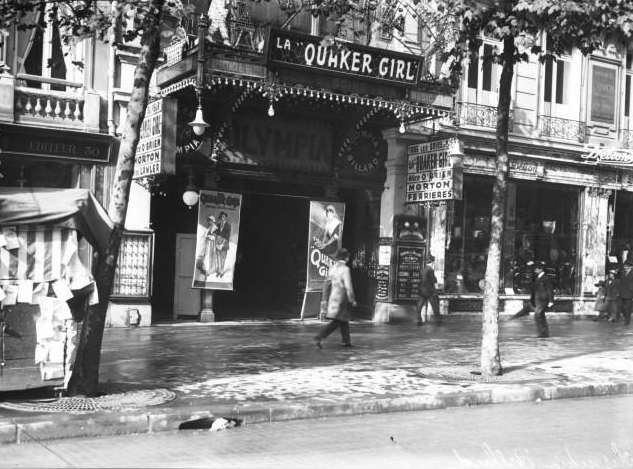|
Montand
Ivo Livi (), better known as Yves Montand (; 13 October 1921 – 9 November 1991), was an Italian-French actor and singer. Early life Montand was born Ivo Livi in Monsummano Terme, Italy, to Giovanni Livi, a broom manufacturer, Ivo held strong Communism, Communist beliefs. Montand's mother Giuseppina Simoni was a devout Catholic Church, Catholic. The family left Italy for France in 1923 following Benito Mussolini's Fascist regime. He grew up in Marseille, where, as a young man, he worked in his sister's beauty salon (Salon de Coiffure), and later on the docks. He began a career in show business as a music-hall singer. In 1944, he was discovered by Édith Piaf in Paris and she made him part of her act. Career Montand achieved international recognition as a singer and actor, starring in many films. His recognizably crooner songs, especially those about Paris, became instant classics. He was one of the best known performers at Bruno Coquatrix's Paris Olympia music hall, and tou ... [...More Info...] [...Related Items...] OR: [Wikipedia] [Google] [Baidu] |
Let's Make Love
''Let's Make Love'' is a 1960 American musical comedy film made by 20th Century Fox in DeLuxe Color and CinemaScope. Directed by George Cukor and produced by Jerry Wald from a screenplay by Norman Krasna, Hal Kanter, and Arthur Miller, the film stars Marilyn Monroe, Yves Montand, and Tony Randall. It would be Monroe's last musical film performance. Plot The plot revolves around billionaire Jean-Marc Clément who learns that he is to be satirized in an off-Broadway revue. After going to the theatre, he sees Amanda Dell rehearsing the Cole Porter song " My Heart Belongs to Daddy", and, by accident, the director thinks him an actor suitable to play himself in the revue. Clément takes the part in order to see more of Amanda and plays along with the mistaken identity, going by the name Alexander Dumas. While rehearsing, Clément finds himself growing jealous of Amanda's attentions to actor Tony Danton, unaware that she only wants to help Tony achieve stardom. In order to impress Aman ... [...More Info...] [...Related Items...] OR: [Wikipedia] [Google] [Baidu] |
C'est Si Bon
"" (; ) is a French popular song composed in 1947 by Henri Betti with the lyrics by André Hornez. The English lyrics were written in 1949 by Jerry Seelen. The song has been adapted in several languages. History In July 1947, Henri Betti was in Nice and on his way to join his father in the center of town to play a game of bridge. Passing under the arcades of the he stopped in front of the window of a lingerie shop and it was there that the first nine musical notes of the song came into his head: F, E, E, F, G, A, G, F, D. He wrote the notes on a sheet of music paper so that he would remember them. Once back home at 52 , he composed the melody in less than ten minutes. He then went up to Paris and made an appointment with the lyricist André Hornez at the Hôtel Grand Powers at 52 to find a title for his song. André Hornez said that the title should be three syllables, sung to the first three notes of the song. The next day the lyricist showed Henri Betti a list of ten t ... [...More Info...] [...Related Items...] OR: [Wikipedia] [Google] [Baidu] |
What Can I Do? (Édith Piaf Song)
"What Can I Do?" ("Mais qu'est-ce que j'ai?") is a French popular song composed in 1947 by Henri Betti with the lyrics by Édith Piaf. The English lyrics were written in 1949 by Harold Rome. Story In 1947, Édith Piaf and Yves Montand had just quit amicably and Édith Piaf had written the lyrics of a song in memory of their love story whose departure was "Mais qu'est-ce que j'ai à tant l'aimer que ça me donne envie de crier!". She asked Henri Betti to put the music on his lyrics inspired by the style of Yves Montand. When they finished writing the song, Henri Betti left to propose it to Yves Montand and he also proposed to him "C'est si bon" that he had written with the lyrics of André Hornez at the same time "Mais qu'est-ce que j'ai?" and registered at the SACEM the same day (18 August 1947). On November 3, 1947, Yves Montand recorded the song with Jean Marion and his Orchestra but before recording it in the studio, he sang the song at the Théâtre de l'Étoile on 9 O ... [...More Info...] [...Related Items...] OR: [Wikipedia] [Google] [Baidu] |
Jean De Florette
''Jean de Florette'' () is a 1986 period drama film directed by Claude Berri, based on a novel by Marcel Pagnol. It is followed by '' Manon des Sources''. The story takes place in rural Provence, where two local farmers plot to trick a newcomer out of his newly inherited property. The film starred three of France's most prominent actors – Gérard Depardieu, Daniel Auteuil, who won a BAFTA award for his performance, and Yves Montand in one of his last roles. The film was shot back to back with ''Manon des Sources'', over a period of seven months. At the time the most expensive French film ever made, it was a great commercial and critical success, both domestically and internationally, and was nominated for eight César awards, and 10 BAFTAs. The success of the two films helped promote Provence as a tourist destination. Plot The story takes place outside a village in Provence, in the south of France, shortly after the First World War. Ugolin Soubeyran returns from his mili ... [...More Info...] [...Related Items...] OR: [Wikipedia] [Google] [Baidu] |
Henri Betti
Henri Betti, born Ange Betti (24 July 1917 – 7 July 2005), was a French composer and a pianist. Pianist and composer of Maurice Chevalier from 1940 to 1945, Henri Betti is best known for composing the music of the songs ''C'est si bon'' (lyrics by André Hornez), '' What Can I Do ?'' (lyrics by Édith Piaf) and '' The Windmill Song'' (lyrics by Jacques Plante) that were performed by Yves Montand. Biography Henri Betti was born at 1 rue Barillerie in the district of ''Vieux-Nice'' in a modest family : his father was a house painter and his mother was a fishmonger. His paternal family originates from the region of Emilia-Romagna in Italy : his grandfather was born in Parma and he immigrated to Nice with his wife and children in 1893. In 1935, he entered at the Conservatoire de Paris which is then directed by Henri Rabaud where he studied music in the same class as Maurice Baquet, Paul Bonneau, Henri Dutilleux and Louiguy. He is the student of Lazare Lévy for piano class ... [...More Info...] [...Related Items...] OR: [Wikipedia] [Google] [Baidu] |
Édith Piaf
Édith Piaf (, , ; born Édith Giovanna Gassion, ; December 19, 1915– October 10, 1963) was a French singer, lyricist and actress. Noted as France's national chanteuse, she was one of the country's most widely known international stars. Piaf's music was often autobiographical, and she specialized in chanson réaliste and torch ballads about love, loss and sorrow. Her most widely known songs include " La Vie en rose" (1946), "Non, je ne regrette rien" (1960), "Hymne à l'amour" (1949), "Milord" (1959), "La Foule" (1957), "L'Accordéoniste" (1940), and " Padam, padam..." (1951). Since her death in 1963, several biographies and films have studied her life, including 2007's '' La Vie en rose''. Piaf has become one of the most celebrated performers of the 20th century.Burke, Carolyn. ''No Regrets: The Life of Edith Piaf'', Alfred A. Knopf 2011, . Family Despite numerous biographies, much of Piaf's life is unknown. She was born Édith Giovanna Gassion in Belleville, Paris. Her b ... [...More Info...] [...Related Items...] OR: [Wikipedia] [Google] [Baidu] |
Simone Signoret
Simone Signoret (; born Simone Henriette Charlotte Kaminker; 25 March 1921 – 30 September 1985) was a French actress. She received various accolades, including an Academy Award, three BAFTA Awards, a César Award, a Primetime Emmy Award, and the Cannes Film Festival Award for Best Actress, in addition to nominations for two Golden Globe Awards. Early life Signoret was born Simone Henriette Charlotte Kaminker in Wiesbaden, Germany, to Georgette (née Signoret) and André Kaminker, as the eldest of three children, with two younger brothers. Her father, a pioneering interpreter who worked in the League of Nations, was a French-born army officer from a Polish Jewish family, who brought the family to Neuilly-sur-Seine on the outskirts of Paris. Her mother, Georgette, from whom she acquired her stage name, was a French Catholic. Signoret grew up in Paris in an intellectual atmosphere and studied English, German and Latin. After completing secondary school during the Nazi o ... [...More Info...] [...Related Items...] OR: [Wikipedia] [Google] [Baidu] |
Marilyn Monroe
Marilyn Monroe (; born Norma Jeane Mortenson; 1 June 1926 4 August 1962) was an American actress. Famous for playing comedic " blonde bombshell" characters, she became one of the most popular sex symbols of the 1950s and early 1960s, as well as an emblem of the era's sexual revolution. She was a top-billed actress for a decade, and her films grossed $200 million (equivalent to $ billion in ) by the time of her death in 1962. Long after her death, Monroe remains a major icon of pop culture. In 1999, the American Film Institute ranked her sixth on their list of the greatest female screen legends from the Golden Age of Hollywood. Multiple film critics and media outlets have cited Monroe as one of the best actors never to have received an Academy Award nomination. Born and raised in Los Angeles, Monroe spent most of her childhood in a total of 12 foster homes and an orphanage; she married at age sixteen. She was working in a factory during World War II when she met a ... [...More Info...] [...Related Items...] OR: [Wikipedia] [Google] [Baidu] |
Monsummano Terme
Monsummano Terme is an ''comune'' located in the Province of Pistoia, Tuscany, central Italy. It is located in the Valdinievole, and is a popular spa resort. It is composed of two separate nuclei: Monsummano Alto, of Etruscan origins and with a castle (probably of Lombard origins) and a line of walls, overlook the lower Monsummano, built starting from 1602 around a sanctuary commissioned by Ferdinand I, Grand Duke of Tuscany. It was the birthplace of French actor Yves Montand and Italian poet Giuseppe Giusti. Geography The district is located in the central-eastern Valdinievole, and is bordered to the north by the hills of Montalbano, to the south by the wetland Padule di Fucecchio, to the west by the Piana di Lucca, and to the east by the semi-hilly areas the town of Larciano. Given the proximity to the Padule, the area displays a wealth of flora and fauna and is a meeting place for birdwatchers. The rivers are very short, of which the Candalla stream is the most prominent, ... [...More Info...] [...Related Items...] OR: [Wikipedia] [Google] [Baidu] |
Jean-Louis Livi
Jean-Louis Livi (born 29 January 1941) is a French film producer. Livi was nominated for an Academy Award and two BAFTA Film Awards for producing '' The Father'' (2020). Early life Jean-Louis Livi is the son of Giuliano/Julien Livi (1917–1994), the older brother of Italian-French actor Yves Montand. Career Between 1990 and 2006, Livi was director of the production companies Film par film and SEDIF (Société d'exploitation et de distribution de films) Productions. Since 2006, he has been the director the production company F comme film. Livi also manages the company ''Solivagus Productions''. Livi and Bernard Murat have been co-directors of the Théâtre des Mathurins and of the Théâtre Édouard VII in Paris. In 2021, Livi became a member of the Academy of Motion Picture Arts and Sciences. Selected filmography Awards and nominations Honours * 9 July 2014: Commandeur of the Ordre des Arts et des Lettres The ''Ordre des Arts et des Lettres'' (Order of A ... [...More Info...] [...Related Items...] OR: [Wikipedia] [Google] [Baidu] |
Manon Des Sources (1986 Film)
''Manon des Sources'' (; meaning ''Manon of the Springs'') is a 1986 French language period film. Directed by Claude Berri, it is the second of two films adapted from the 1966 two-volume novel by Marcel Pagnol, who wrote it based on his own earlier film of the same title. It is the sequel to ''Jean de Florette''. ''Jean de Florette'' and ''Manon des Sources'' are ranked No. 60 in ''Empire'' magazine's "The 100 Best Films of World Cinema" in 2010. Plot Following the events of ''Jean de Florette'', Manon, the daughter of Jean, is living in the countryside of Provence near Les Romarins, the farm that her father once owned. She has taken up residence with an elderly Piedmontese squatter couple who teach her to live off the land, tending to a herd of goats and hunting for birds and rabbits. Ugolin Soubeyran, also called Galinette (only by his uncle César), has begun a successful business growing carnations at Les Romarins with his uncle, César Soubeyran—also known as Papet—thank ... [...More Info...] [...Related Items...] OR: [Wikipedia] [Google] [Baidu] |
Paris Olympia
The Olympia (; commonly known as L'Olympia or in the English-speaking world as Olympia Hall) is a concert venue in the 9th arrondissement of Paris, France, located at 28 Boulevard des Capucines, equally distancing Madeleine church and Opéra Garnier, north of Vendôme square. Its closest métro/RER stations are Madeleine, Opéra, Havre – Caumartin, and Auber. The hall was opened in 1893 by one of the two co-creators of the Moulin Rouge venue, and saw many opera, ballet, and music hall performances. Theatrical performances declined in the late 1920s and the Olympia was converted into a cinema, before re-opening as a venue in 1954 with Bruno Coquatrix as executive director. Since the 1960s, it has been a popular venue for rock bands. The Olympia was threatened with demolition in the early 1990s, but saved by a preservation order. Inevitably included in a group of buildings that were part of an extensive renovation project, the entire edifice was demolished and rebuilt in ... [...More Info...] [...Related Items...] OR: [Wikipedia] [Google] [Baidu] |



